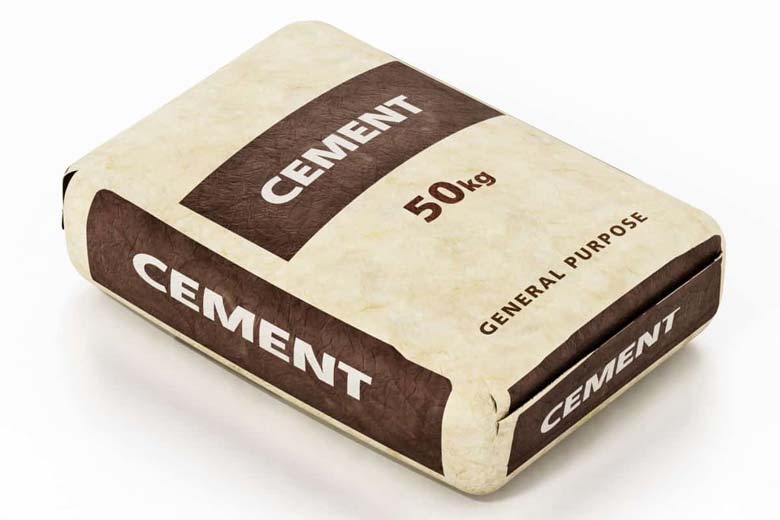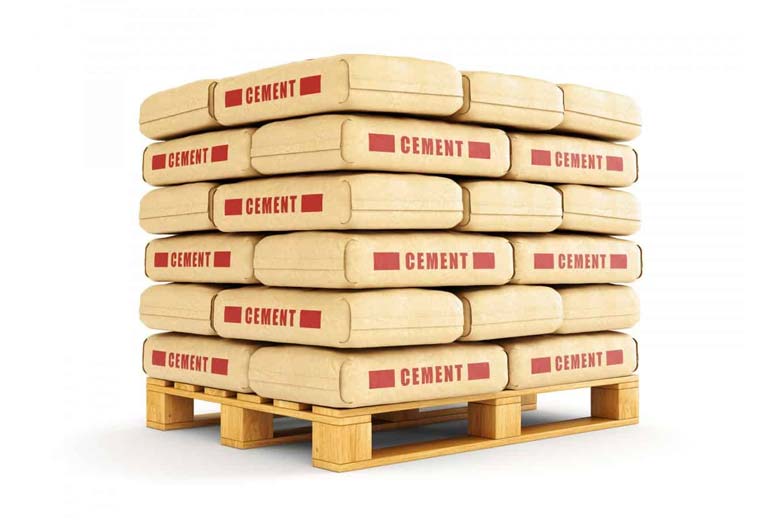Understanding the make-up and process of making a concrete mixture will shed some light on the answer to this question. Concrete is a mixture of cement powder, aggregate, and water. Water activates the cement powder to become a binding agent for the concrete.
Quikrete or any other bag of cement cannot get wet. Cement is highly sensitive to moisture and once the contents are exposed to water or other moisture, the ingredients will begin to chemically react. Once the bag becomes wet, the cement mixture will permanently harden and become useless.

Process Of Hydration
Cement is a mixture of limestone and clay. It is a binding agent that is heated and mixed to form a stone-like substance. The reason cement becomes hard when it gets wet is due to a process called hydration.
“Hydration is a chemical reaction in which the major compounds in cement form chemical bonds with water molecules and become hydrates or hydration products.”
Source
Commonly, we think that concrete becomes strong when it becomes dry. In reality, once the concrete is finally dry it will stop becoming stronger.
In contrast, continued exposure to water will increase its strength over time. This is why water is used often throughout the curing process.
Read more: Do You Need to Keep Concrete Wet During the Curing Process?
If your bag of concrete gets wet and continues to be wet, it will get pretty hard and not be usable.
Storing And Using Quikrete Bags
It is important that when you are using concrete that you may potentially have to store, that you be sure not to drop, weaken, or damage the bag and packaging.
To ensure when you pick them up that they do not rip, roll the bags over a couple of times to loosen up the concrete before you grab it. Always hold the bag by the underside and support it as much as possible.
If you have it in the bed of a truck or car, be sure there are no other objects that can penetrate it, and be sure to lay them flat, not on their sides or bottoms.
Do not leave your bags in an open bed pickup truck for long periods of time, especially since precipitation will ruin your mix.
While the best way to get concrete is fresh from the store if you are required to store it for a time, be sure that it is kept off floors and out of moisture. Most local hardware shops will allow you to return a bag you have in excess or no longer have the use for, as storage of concrete can be a challenge.
- Use a waterproof trap to cover concrete bags.
- Do not place next to things that change drastically in temperature, like an AC unit or water heater.
- Place them in a waterproof bin.
- Do not store cement with other items like fertilizer or food.
- Place the bags with space in between, and up off the floor (with a pallet).
- Where ever you put them, provide appropriate ventilation so that damp air does not build up.
- Rotate them occasionally and use the oldest product first.

Uses for Ruined Concrete Bags
If the rain got to your concrete bag, or the moisture in the basement where you were storing it got to be too much, you are probably tempted to just throw the whole thing out. While that is an option, there can also be other uses for your rock concrete.
Sometimes only the exterior will become hard, and once the hard clumps are chiseled away, there remains some usable cement power. Often this powder will not work as well, but can still be used if necessary. Otherwise, there are some other options.
- Break up the concrete into chunks of the desired size and use it as the aggregate in another concrete project.
- Use the broken pieces for yard work around the house, to fill in a slope or hole.
- Use small pieces as part of a gravel walkway or path.
- Use it as an aggregate beneath a patio or driveway to enhance the drainage.
- Use it in the bottom of planters to help with watering and growth.
Overall, do not let your bag of cement get wet! If it does, it is no longer of much use to you for its intended purpose. It is hard to store but can be accomplished in a dry, ventilated place that stays at a consistent temperature.



